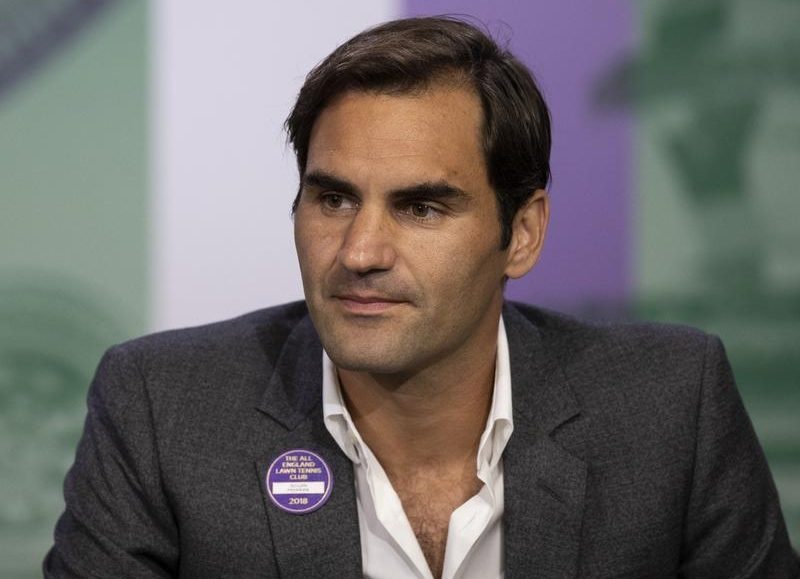
Reigning champion and top seed Roger Federer will begin his 20th consecutive Wimbledon campaign, but the Swiss ace says he still feels nervous at the thought of playing the opening match of the tournament on Centre Court.
Federer made his Wimbledon debut in 1999 and is a favourite to win a record-extending ninth title there this year and yet the 36-year-old Swiss said he is not immune to the grandeur of the opening day.
“I think it remains a little bit nerve-racking… It’s a big deal. I mean, besides the history and the mythical place that it is, you cannot also practise on it,” Federer told reporters.
“When you come out, there’s a bit of uncertainty for both players… The entire atmosphere changes at Wimbledon, and you realise the eyes are on you. That naturally makes you a bit nervous.
“Basically the first one on the show court, it’s always a lot to ask for from the players but I love it. It’s a massive honour. You try to do your best.”
The 20-times grand-slam winner faces Serbian Dusan Lajovic in the first round and believes his big-match experience can guide him through a tricky opening encounter.
“It’s maybe more nerve-racking because you’re not acclimatised to the court yet. I think that might help me, the big-time match play that I’ve had over the course of my career,” Federer added.
Earlier, seven-times Wimbledon champion Serena Williams described her treatment by the U.S. Anti-Doping Agency (USADA) as shocking and raised questions about the number of times she had been tested this year.
Federer said he had also been tested extensively out of competition but questioned the inconsistency of the tests, saying he had been tested only once in the 15 years that he had played in Dubai.
“I’ve had a lot of testing the last month; I think I’ve had seven tests.” he said. “I’ve been tested quite a bit, quite frequently out of competition. I mentioned many times in Dubai I’ve hardly ever been tested, which has been quite disappointing.
“I think it varies from place to place that you spend your time in. Maybe that’s the part I don’t like so much: the inconsistency of the places where they test.
“What’s important is these people are professional, they know what they’re doing, they treat you like humans, not like criminals… But I understand the frustration sometimes. I have it, too.”




